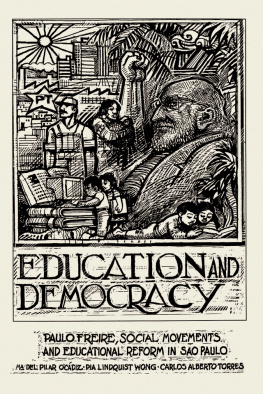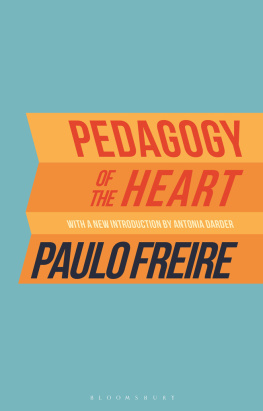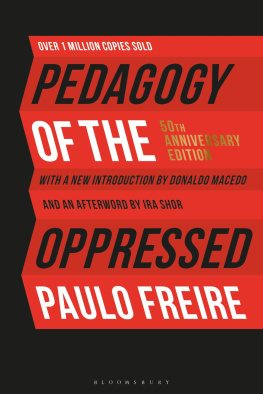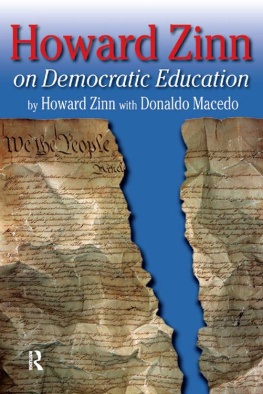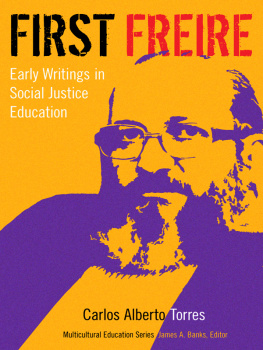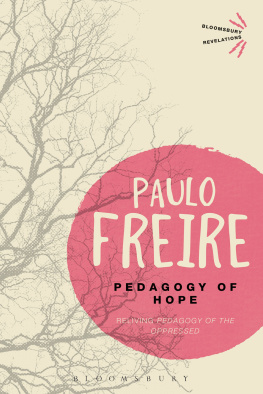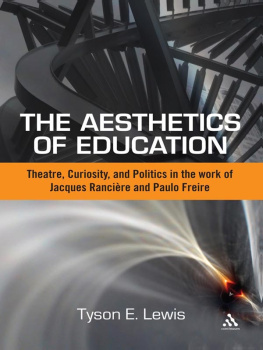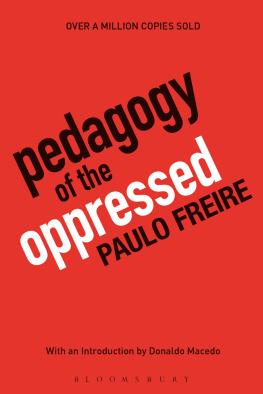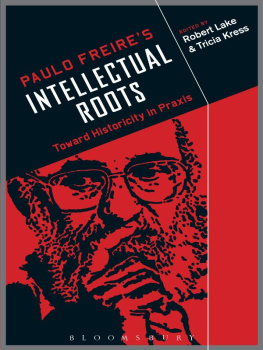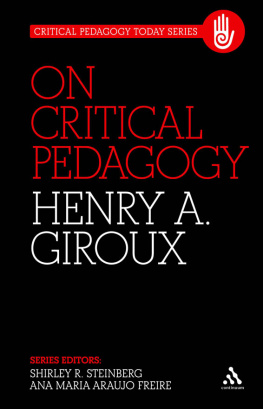Acknowledgments
Pia Lindquist Wong
Almost 10 years ago, I made a "career change" from working in community development to working in education. Paulo Freire and the educational framework put forth in Pedagogy of the Oppressed were instrumental in helping me to blend together a commitment to social transformation and a budding interest in education. Pedagogy of the Oppressed changed the way I thought about the educational process; the Inter Project changed the vision I had about the potential beauty and liberatory qualities of that same process. I feel forever indebted to Paulo Freire and to the many Brazilian educators who showed me that formal learning can indeed by a joyful and transformative act.
I would also like to acknowledge several people without whose unswaying support this book would not have come to fruition. It has been a wonderful experience to have worked with Pilar O'Cadiz and Carlos Alberto Torres. I have learned a tremendous amount from each of them, as they willingly shared their expertise and brilliant insights while we worked together writing this book. Their patience, grace, and good humor have made these seven years pass quickly. I can only hope that all my future collaborations are as pleasant and fruitful as this one has been. In a way, this whole book came to fruition because of a certain Stanford University connectionwith the important link being Martin Carnoy, who was my mentor and who served as Carlos Alberto Torres' advisor years earlier. I would like to thank him for introducing me to Paulo Freire when I was just beginning the doctoral program there, and for the subsequent intellectual guidance that he provided in the ensuing years. One Brazilian educator in particular deserves mention in this openingAntonio Fernando Gouvea, the grande Gouva. For some reason he had special patience for this norteamericana who appeared at his school with countless questions and a need to sit in on every meeting, visit every classroom and interview all the staff and students. His understanding of the Inter Project and his insights into the implementation of this reform are present in all aspects of my analysis; his guidance was as illuminating as his friendship was invaluable.
In addition, heartfelt thanks to my dear friends, Lexie and Daltro Morandini, to whom I feel indebted forever for their unflagging good humor, generosity and hospitality in hosting me in their home for eight months.
Finally, I would also like to thank my family who have always given willingly and generously of their time and love. My husband, Bruce Griesenbeck, has remained interested, curious, supportive, and patient throughout all of the work on this book, which included an eight month period of separation. His limitless capacity for backrubs, late night discussions, dishes, laundry, and international phone bills cannot be overappreciated. My parents, Yen Lu Wong and Herbert Shore, have been a constant source of intellectual guidance. I have always felt privileged to have had their support, both emotionally and intellectually. But most of all, I want to thank our young son, Riley Hui Griesenbeck, whose entry into this world made me full of wonder and gratitude. More than anything else, his young life, curious mind, and innocent smile make me more determined than ever to do what I can to make this world (in the words of Paulo Freire) "less ugly, less cruel, and less inhumane." I hope this book and the understandings derived from it will be one step in that direction.
Pilar O'Cadiz
In carrying out the research for this book, I had the fortune of meeting many committed educators in Sao Paulo whose creativity, diligence and perseverance in the face of seemingly insurmountable obstacles never ceased to astound me. I owe my deepest gratitude to them for allowing me into their classrooms and homes, for maintaining interest in my work and offering me their insights and much-esteemed friendship. Although I appreciate the input of all the Brazilian teachers who contributed to this research, I would like to give a special thanks to Gouvea, Maria do Carmo, Francisca, Flavio, Sonia, Rosa, Carolina, Marlene, Nanci, and Elza. Obrigada!
I could not have spent so many months in the field without the generosity of my dear Brazilian friends, Doni and Miriam Atunes, Rogerio and Liana Belda, Adima Aith and family Luciana Chaui, Claudio Coutinho and Marcio Aith, Maria do Carmo Mendonqa and family, Vera and Marcos Madeiro, Evanete Caldas, Jose and Zuleide Bezerra, whom I would like to thank for providing me with a place to stay and all the rest.

